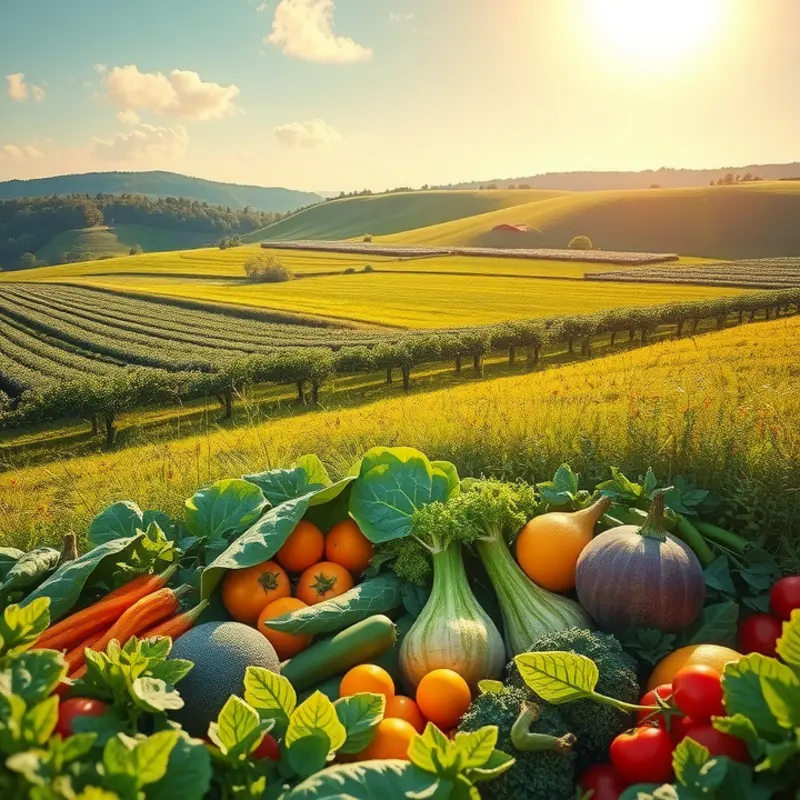Curious about the growing trend of plant-based diets? The popularity of vegan and vegetarian lifestyles has skyrocketed, prompting many to explore their features and benefits. This exploration unveils not only differences in dietary choices but also health advantages, ethical gains, and environmental impacts. Readers will gain clarity on which path might best suit their personal beliefs, preferences, and overall wellness.
Defining the Differences: Veganism vs. Vegetarianism

Choosing a plant-based path can be enriching, but understanding the nuances is essential for success. Veganism and vegetarianism are two prominent choices, each with distinct principles and practices.
Veganism is a lifestyle choice that excludes all animal products. This means not only avoiding meat and seafood, but also eschewing dairy, eggs, and any products derived from animals, such as gelatin and honey. The primary motivation for many vegans is ethical, driven by concerns over animal welfare and rights. Some adopt veganism for environmental reasons, given its potential to lower one’s carbon footprint and reduce resource consumption. Health-focused vegans may see it as a way to enhance well-being, although this requires careful planning to ensure nutritional adequacy.
Vegetarianism, in contrast, primarily excludes meat and seafood. Several branches exist within vegetarianism: lacto vegetarians consume dairy, ovo vegetarians consume eggs, and lacto-ovo vegetarians consume both. Within these frameworks, individuals tailor their choices to align with personal values and nutritional needs. Many vegetarians abstain from meat due to ethical, health, or environmental reasons, similarly to vegans.
Ingredients play a significant role in distinguishing these lifestyles. Both vegans and vegetarians thrive on a wide array of fruits, vegetables, grains, and legumes. However, vegetarians augment their diets with animal-derived products like cheese or yogurt, while vegans often rely on plant-based alternatives. For instance, vegans may use almond, soy, or oat milk instead of cow’s milk.
Analyzing daily eating patterns, a vegan diet might include meals like tofu stir-fry with various vegetables, paired with quinoa or brown rice. Snacks could involve nuts, fruits, or hummus. While vegetarians might enjoy similar meals, they might incorporate cheese in their dishes or have yogurt as a snack, providing unique nutrients absent in a vegan diet.
Relating to environmental impact, veganism typically leaves a lighter footprint, as animal agriculture contributes significantly to greenhouse gas emissions, deforestation, and water use. Yet both diets support a more sustainable lifestyle compared to meat-heavy diets. If you’re looking to further explore sustainable practices, the blog entry on eco-smart kitchen storage may offer practical insights.
Motivation also influences these dietary choices. Understanding personal values and goals can help one decide whether veganism or vegetarianism aligns better with their lifestyle. Whether minimizing environmental impact, improving health, or upholding ethical standards, identifying your driving force can inform your choices.
Ultimately, understanding the distinctions between veganism and vegetarianism is the first step in an informed dietary lifestyle. Embrace the common foundation while appreciating the unique differences to make a choice that resonates deeply with your values and aspirations.
Health Benefits and Environmental Impact: Choosing Your Path

Adopting a vegan or vegetarian lifestyle brings numerous health benefits and contributes positively to environmental sustainability. Both diets emphasize plant-based foods, but each has its distinct characteristics and nutritional needs. Understanding these can help in making informed dietary choices.
One significant health advantage of both vegan and vegetarian diets is their potential to decrease the risk of chronic diseases. A plant-based diet is rich in dietary fiber, antioxidants, and phytochemicals, which are known to lower the risk of heart disease, certain cancers, and type 2 diabetes. These diets typically have lower levels of saturated fats, which can contribute to lower cholesterol levels and better heart health.
However, it’s vital to consider nutrient intake to ensure a well-balanced diet. Vegans need to be attentive to certain nutrients typically found in animal products, such as vitamin B12, iron, calcium, omega-3 fatty acids, and protein. Supplementation and mindful food choices can mitigate these concerns. For instance, fortified foods and nutritional yeast can help with B12, while legumes and leafy greens are excellent plant sources of iron and calcium. Incorporating ingredients such as chia seeds and flaxseeds can provide essential omega-3 fatty acids without fish oil. You can explore more on non-dairy probiotics as part of a balanced diet.
Vegetarians, while more inclusive of certain animal products like dairy and eggs, should also keep track of nutrient intake, particularly iron and omega-3s, to maintain optimal health. Both diet paths emphasize whole, minimally processed foods, which can enhance digestion, support weight management, and boost energy levels.
Beyond individual health benefits, plant-based diets are lauded for their positive environmental impact. Plant-based eating reduces carbon footprints significantly by lowering emissions typically associated with meat production. Resource-intensive livestock farming is a leading contributor to greenhouse gas emissions. By transitioning to vegan or vegetarian diets, individuals can reduce their overall impact on the planet.
Environmental considerations also extend to water conservation. The water required to produce plant-based foods is considerably less than that needed for raising livestock. This conservation can be crucial in regions facing water scarcity, making vegan and vegetarian diets important from a sustainable living perspective.
Collectively, these aspects underscore how plant-based diets can be a tool for fostering sustainable practices and promoting global food security. While health is a compelling motivator for many, the broader impact on the environment can also steer one’s dietary decisions. Both vegan and vegetarian diets can serve as pathways to a healthier planet and a healthier you. Embracing either lifestyle requires vigilance in nutritional adequacy and a commitment to environmental stewardship, thus allowing individuals to align personal health goals with ecological responsibility.
Final words
Both vegan and vegetarian diets offer rich possibilities for health and sustainability, but the right choice depends on individual preferences, nutritional needs, and moral beliefs. By understanding the differences, benefits, and potential challenges of each, you can make an informed decision that resonates with your lifestyle and values. Remember to consider how each option aligns with your health goals and ethical standards, leading to a fulfilling and nurturing dietary path.








